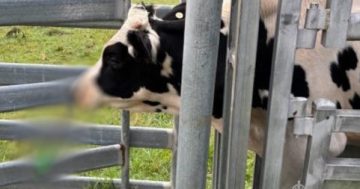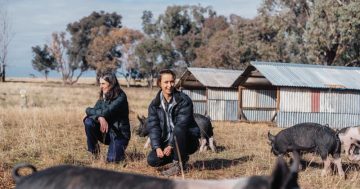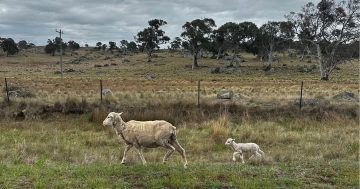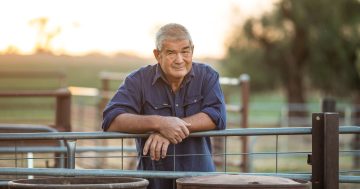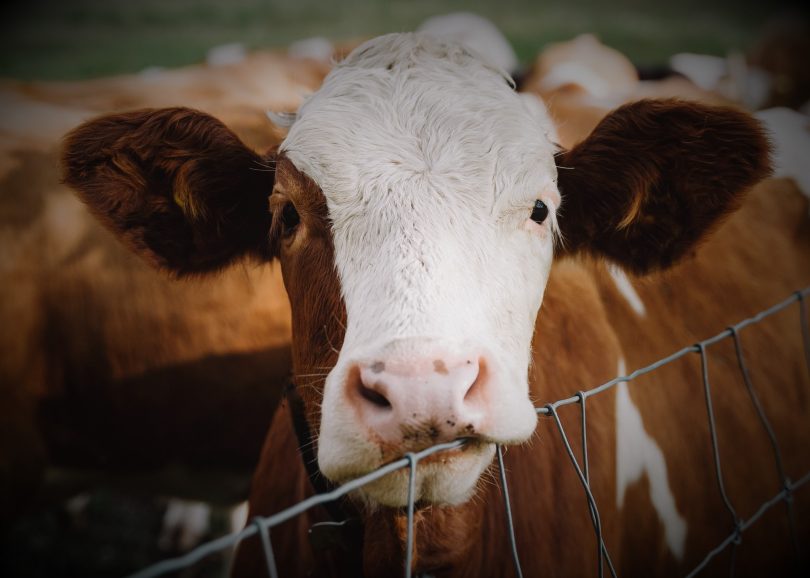
According to the 2020 NSW Farm Crime Survey, around 82 per cent of NSW farmers have experienced some type of criminal activity, including livestock theft, petrol theft and trespassing. Photo: Supplied.
It only takes a flick through the Facebook page of the NSW Police Rural Crime Prevention Team to see what people will steal from farms.
Sheep, cattle, solar fence energisers, quad bikes, tools, saddles, horses – if opportunists see an opening and it isn’t nailed down, they’ll take it.
Sometimes rural crime can be more subversive, such as complex market selling schemes that result in windfalls for perpetrators and nothing for investors.
Not all of rural crime is reported and researchers at the University of New England (UNE) want to know why.

Wool is one rural commodity that opportunistic thieves target on NSW farms. Photo: Edwina Mason.
They are reaching out to farmers throughout NSW to participate in an anonymous voluntary online study about farm crime in NSW that will – stats willing – help curb a trend as old as the wild west.
Dr Kyle Mulrooney from UNE’s Centre for Rural Criminology says the study – in the form of a 15-minute survey – is comprehensive.
“We want to get a lot out of it,” he said. “It’s all encompassing, which in the world of research and surveys is dangerous, but we took into account that farmers want to be heard on this. They often feel ignored.”
In the four months since the 2020 NSW Farm Crime Survey was released, the number of responses has been encouraging.
Dr Mulrooney attributes the uptake to social media’s sharing powers of partner organisations, including NSW Police, NSW Farmers, NSW Department of Primary Industries, Local Land Services and some local councils.
“There are 88 questions, and in the past we have found that a lot of times people get bored and impatient, but there has been an overwhelming response to this survey,” he said.
And overwhelming stats, too.
Dr Mulrooney confirmed around 82 per cent of responses indicate farmers who have taken the survey have been impacted by crime.
“This is rather high,” he said, “It is higher than previous surveys done in NSW.”
Getting a handle on the types of crimes farmers are experiencing is one thing, but gaining insight into their views on police and their responses to rural crime are critical to the study.
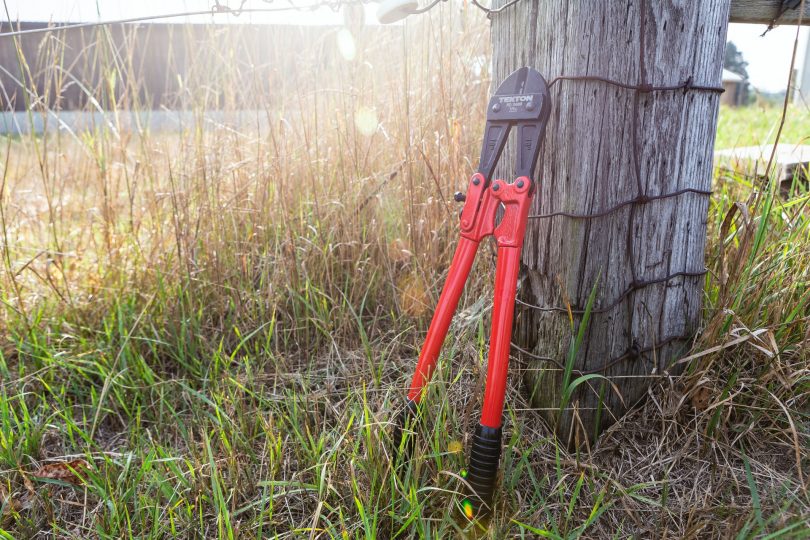
Dr Mulrooney says farmers are reluctant to report crimes and the NSW Farm Crime Survey will help pinpoint the reasons why. Photo: Supplied.
“We know from past research this disconnect between farmers and police is a primary problem, particularly on understandings of farming,” said Dr Mulrooney. “For instance, the economic value of cattle that officers might not take into account.”
Reporting rates also come under the spotlight, which Dr Mulrooney terms the “massive dark figure of crime” – knowing there is a great deal of victimisation of farmers, yet they are not reporting crimes to police.
“We want to know why farmers aren’t reporting so we can try to fix those areas and encourage the reporting of crime,” he said. “Because at the end of the day that is the biggest gap we have right now.”
Dr Mulrooney said reprisal or retaliation from criminals is the second-most common reason farmers are not reporting crime.
“Often the farmer knows the offender, but there is this element of fear – social or cultural – of dobbing someone in,” he said. “However, the primary thing is they know or think nothing can be done about it.”
And then there’s the very basic crime fighting tools and techniques farmers are not using.
“A lot of the time we find they are not being applied for very rational reasons,” said Dr Mulrooney. “For instance, ‘I don’t want to shut the gate because then I’d spend half the day locking and shutting up 100 gates.’ There are a variety of things we’re trying to learn from.”
An area increasingly being studied is that rural crime has always played second fiddle to urban crime.
But Dr Mulrooney said he had fielded a number of calls directly from farmers interested to know more about the survey.
“The amount of farmers who have just rung me up to have a chat about some of these issues has been fascinating,” he said. “To hear about these issues first hand in the context of the survey has been even more enlightening.
“The next stage will be adding a qualitative element – sitting down with the farmers and talking to them about their experiences.
“All this stuff you see statistically adds a whole other element when you hear a voice on the other end of the phone telling you about it.”
Submissions for the NSW Farm Crime Survey remain open and Dr Mulrooney hopes more farmers participate before he delivers his preliminary findings to NSW Police to start developing policy and actions.
He is also hoping to see it dovetail into nationwide and international surveys on rural crime.
“As you can imagine, farm crime in South Africa takes on a very different picture than it does in Australia,” he said.
The NSW Farm Crime Survey can be found here.






